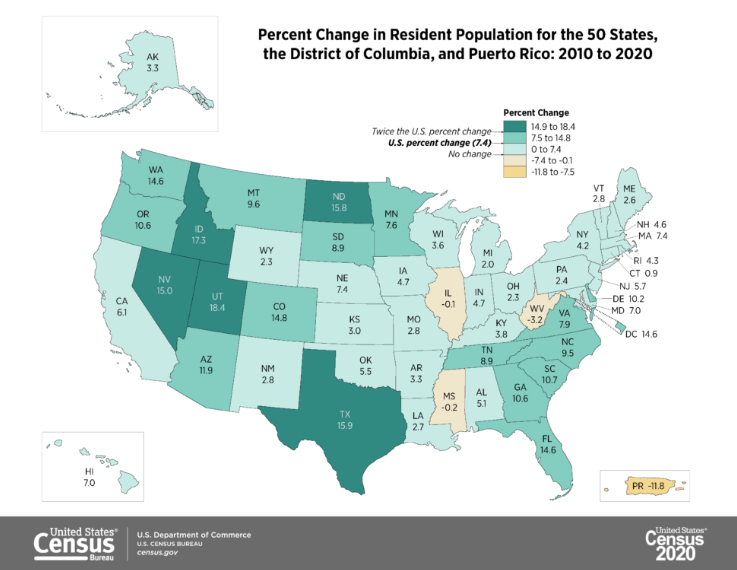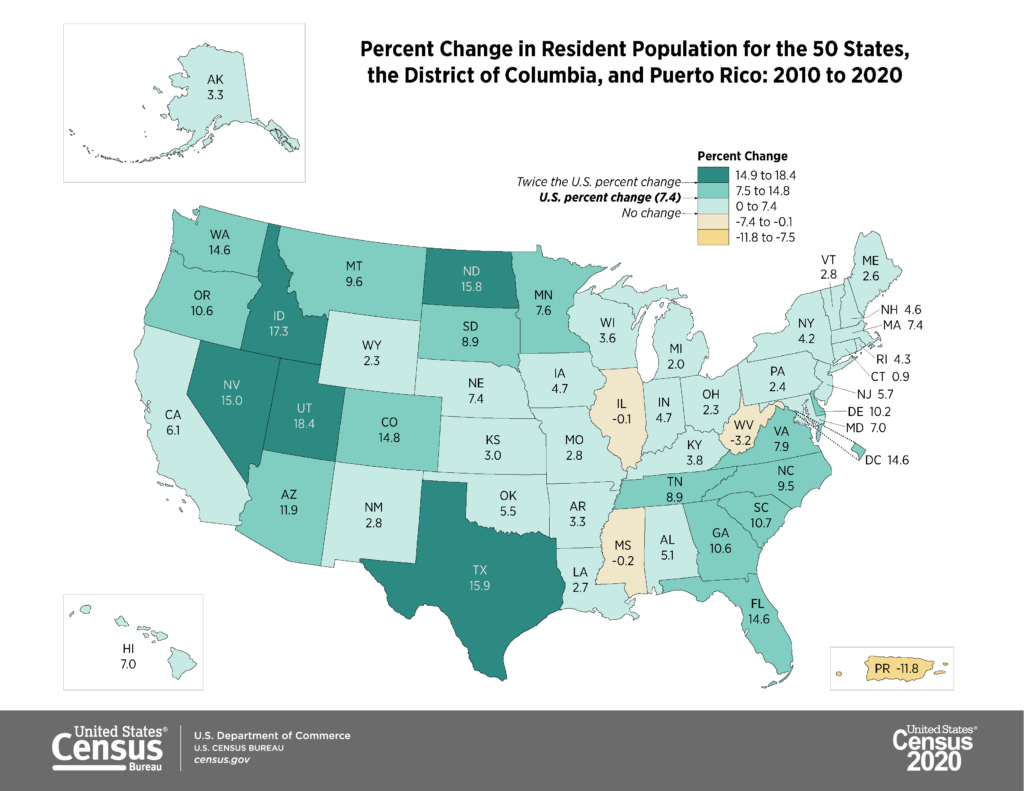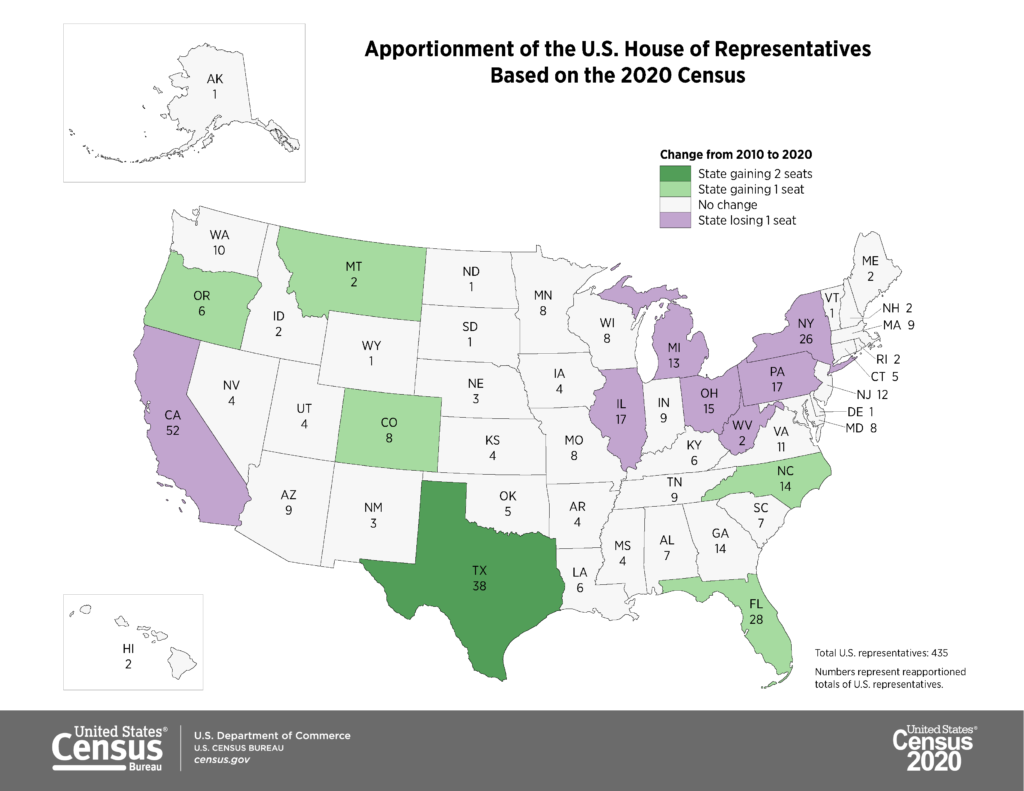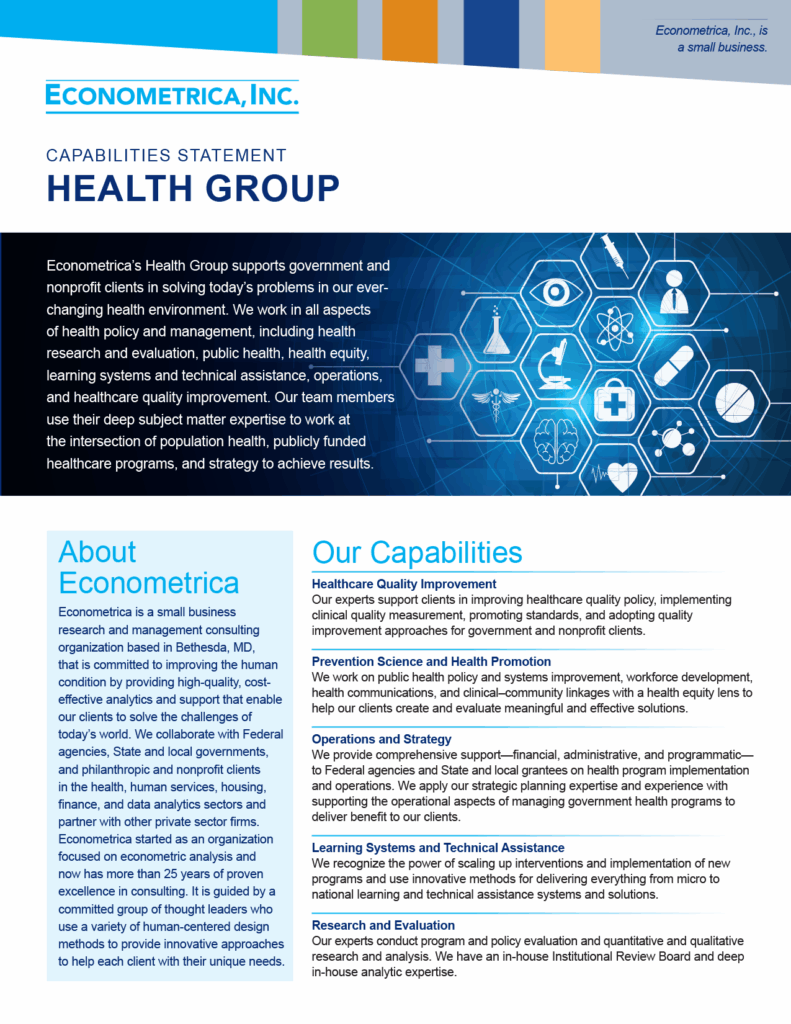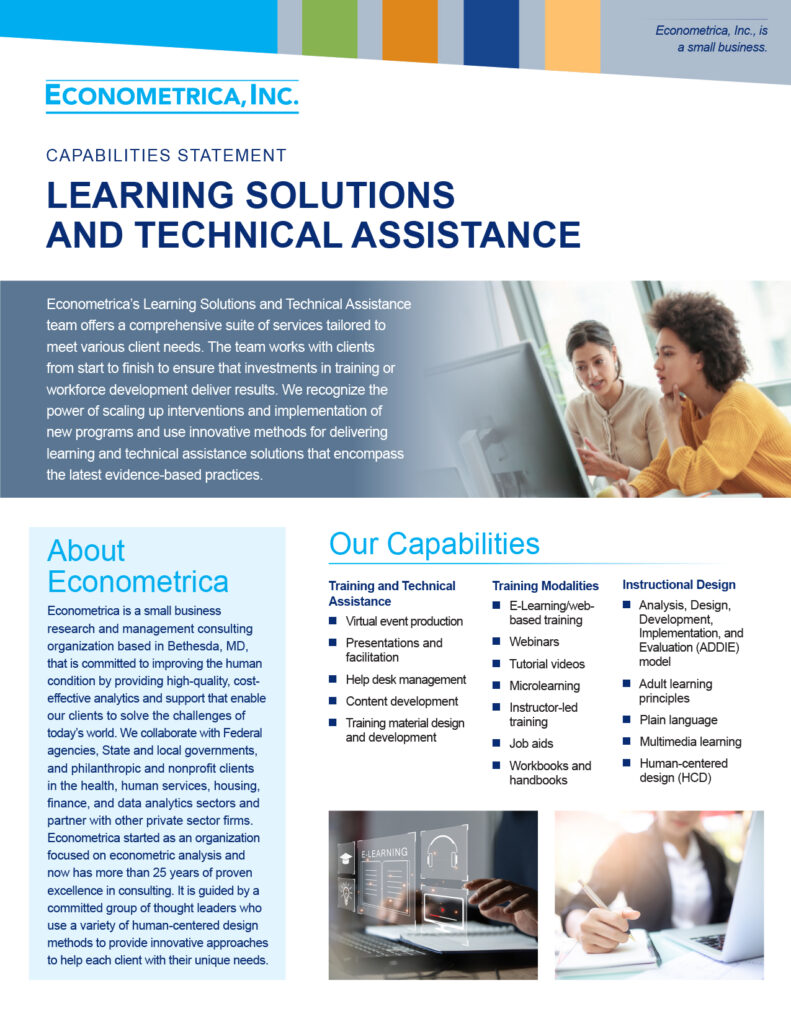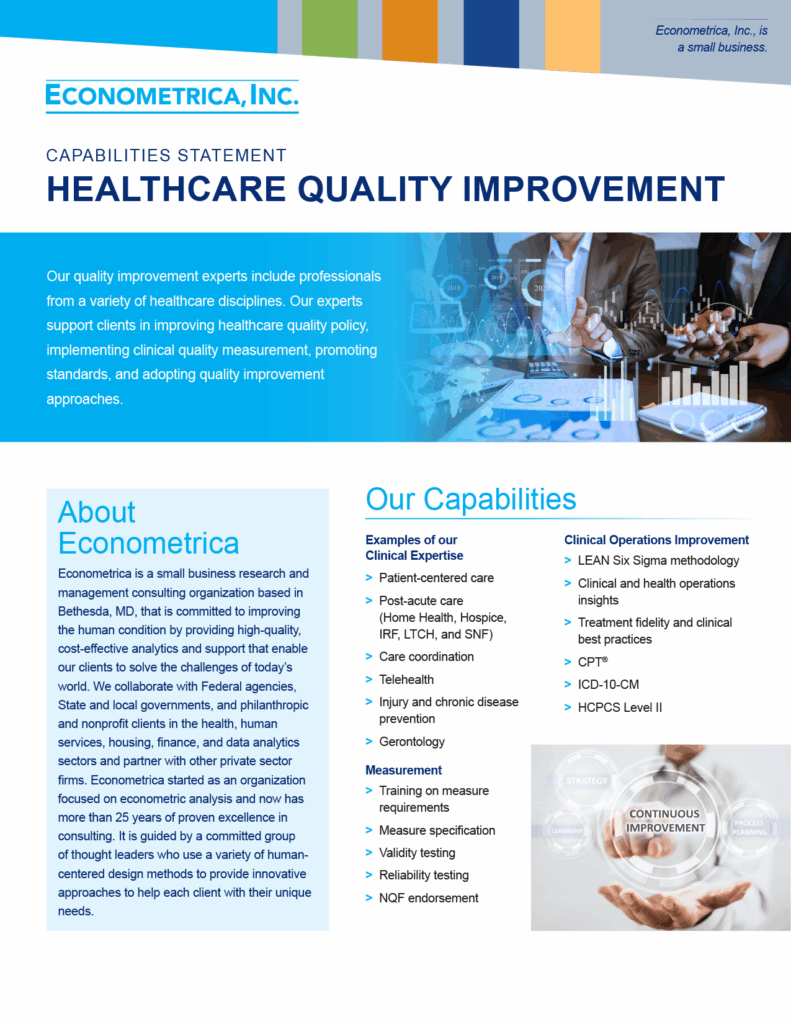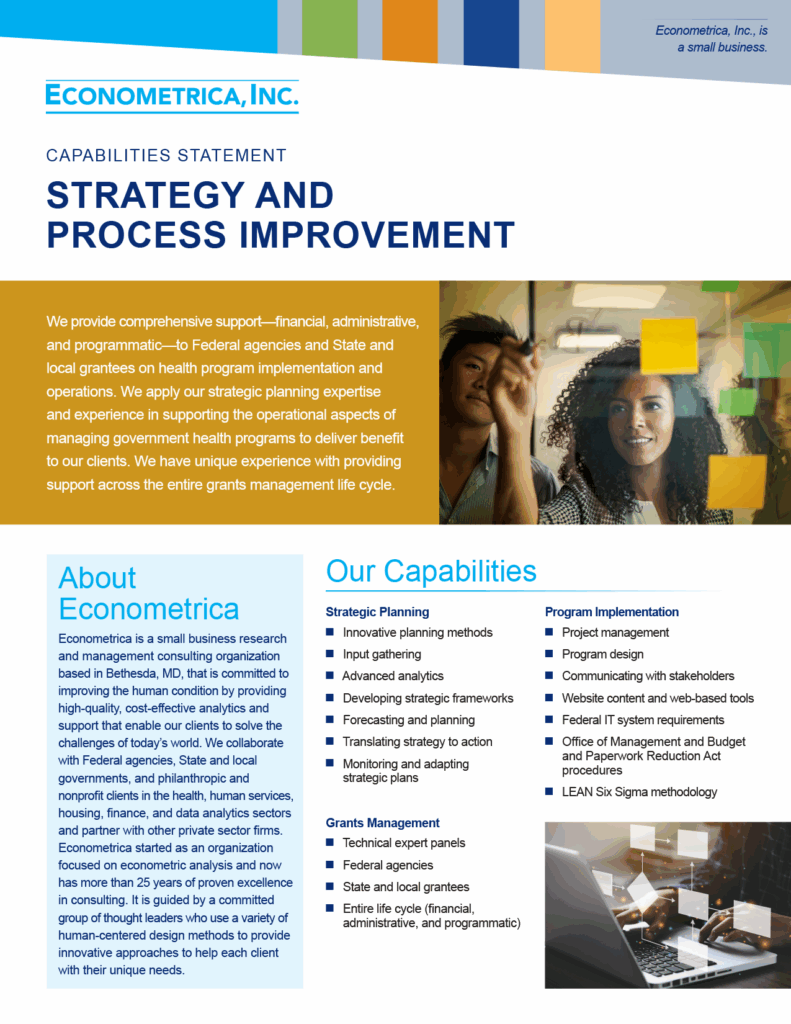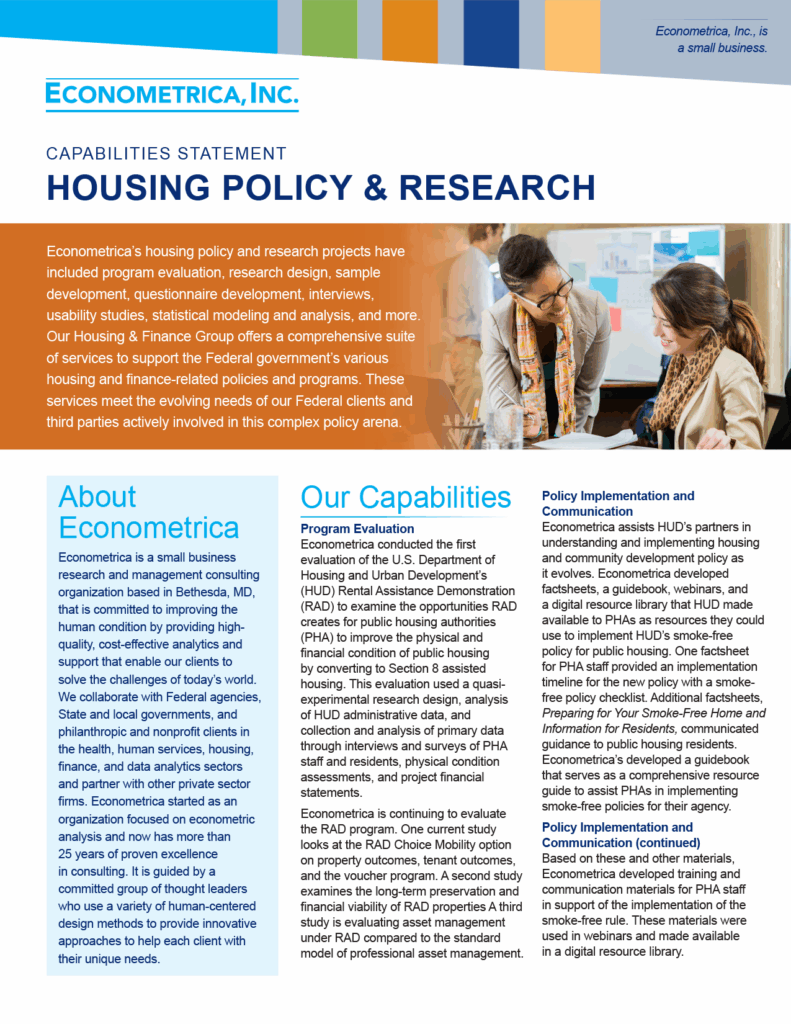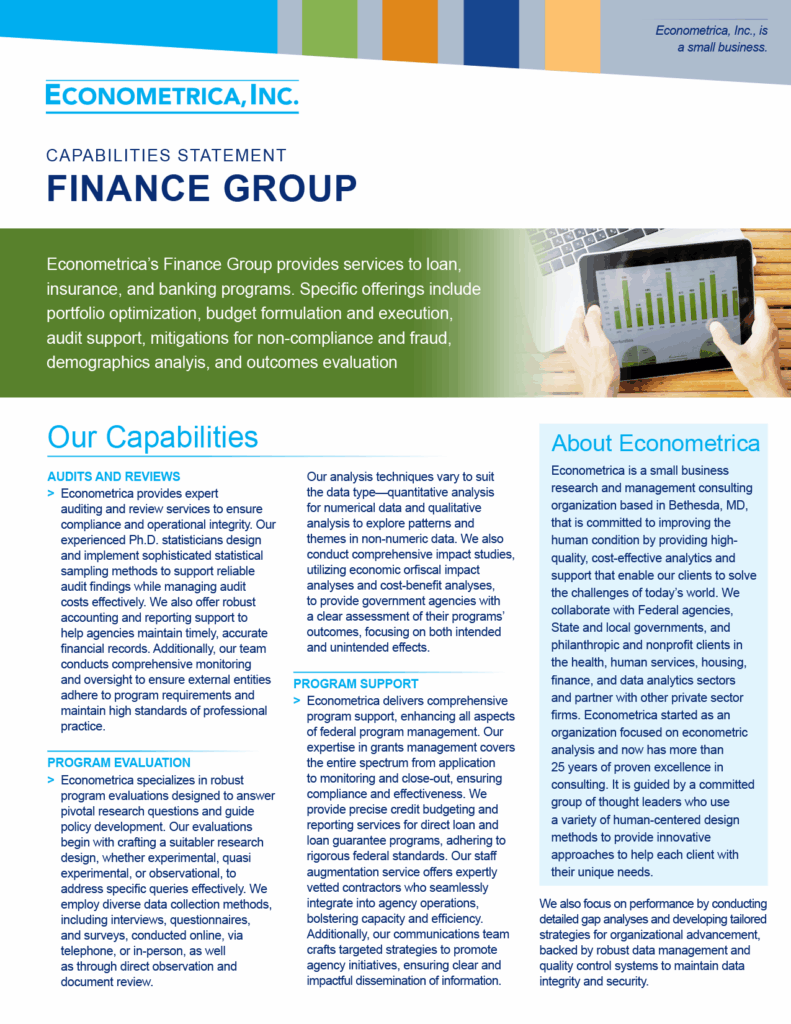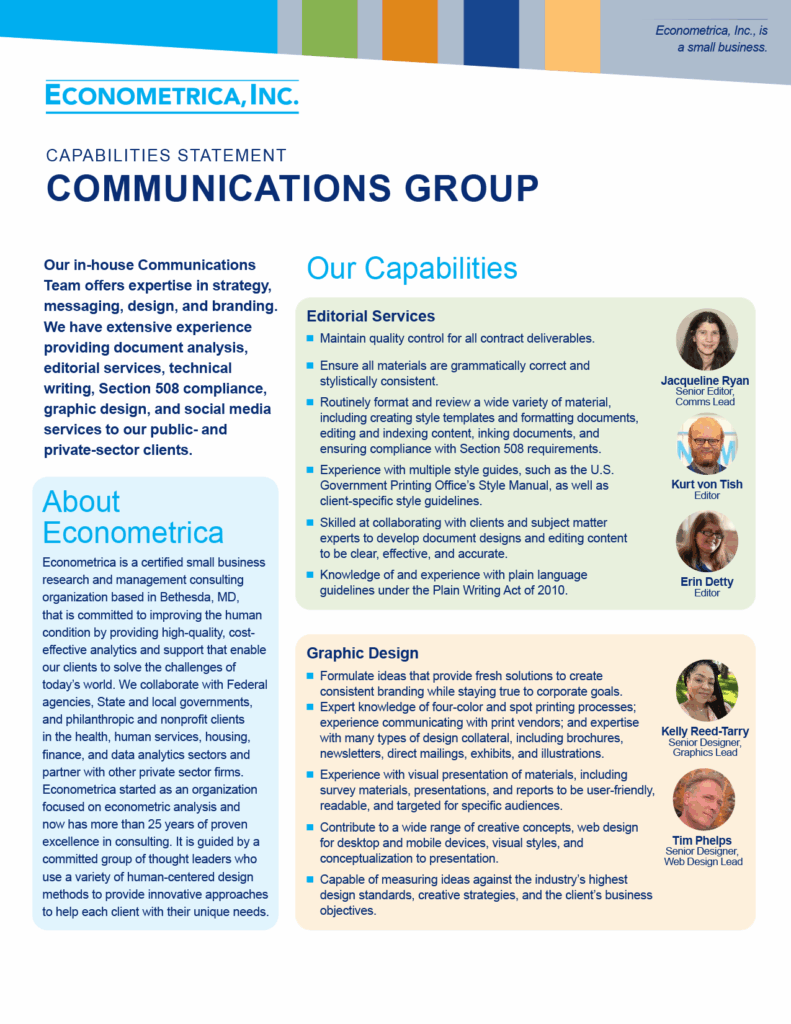The recent blockage of the Suez Canal delayed worldwide shipping and caused billions in damages. A Bloomberg analysis reported that the grounding of the Ever Given held up as much as $9.6 billion in cargo per day, and The New York Times reported that it could take years to sort out all of the costs of the blockage.
The blockage highlights the need for transportation network vulnerability assessment tools, such as the port delay model developed by Econometrica to help the U.S. Coast Guard (USCG) evaluate the economic costs of port closures.
USCG regulations affect a wide range of nonmarket factors, including risks of fatal and nonfatal injuries, ecosystem damage due to oil and hazardous materials spills, and economic disruption associated with natural and manmade disasters. As part of a larger study to advance the methods USCG uses to estimate the benefits of its regulations, Econometrica developed two scenario-based simulation models to estimate the economic costs of maritime transportation delays:
- Deep Water Port (DWP) model
- Inland Waterway (IW) model
The DWP model addresses delays associated with ocean-borne freight, whereas the IW model addresses freight delays that occur as a result of disruptions on inland waterways. Both models allow USCG to posit a variety of scenarios involving both expected and unexpected port disruptions/closures.
The models incorporate queuing and rerouting algorithms that depend on the specified length of the delay for the scenario. The models can distinguish between short-term delays—where delayed cargo is not rerouted—and longer-term delays, in which cargo is rerouted to a different port to mitigate the increasing cost of waiting for the delay to clear. In this regard, the models provide costs associated with queuing (or waiting for the delay to clear) as well as rerouting, if applicable.
The main cost elements include:
- Increased transportation costs (e.g., fuel and other operating expenses) that accrue during the delay as a result of increased transit time, rerouting, and/or use of alternative modes of inland transportation.
- Marine vessels.
- Inland transportation modes.
- Costs to shippers resulting from the additional transit time, including depreciation and inventory carrying costs.
- Environmental costs that ensue as a result of increased transportation distances associated with rerouting or the temporary use of alternative transportation modes that have higher pollution emission rates.
- Public safety costs attributable to reduced safety due to increased transportation distances associated with rerouting or temporary use of alternative transportation modes that are less safe than the normal water transportation modes used.
To create a specific user-defined scenario, users must enter the following types of information:
- The length of the delay incident.
- The volume of freight delayed during the incident.
- Whether the delay is caused by an expected or unexpected type of event.
- The coast on which the delay incident occurs.
- Whether a random port is affected or a specific port is affected.
- Whether all commodities are affected or a specific commodity is affected.
The models use this information to compute how much cargo is rerouted and queued, the additional time and distance associated with queuing and rerouting, and how long it takes to clear the delayed cargo given the backlog generated during the incident. The DWP model uses a gravity-like algorithm in conjunction with the Federal Highway Administration’s Freight Analysis Framework database to reroute cargo from affected ports to alternate ports; the algorithm also computes several weighted-average metrics associated with rerouting, including marine distances, inland transportation distances, and inland transportation mode shifts. The IW model uses a tow arrival algorithm to capture rerouting decisions when there are closures on the Nation’s inland waterway system.
Based on these calculations, the models estimate the total economic costs attributable to the simulated port closure. The models also provide other capabilities, including the ability to compare delay costs for different commodity groups and the inclusion of a regulatory scenario analyzer that projects delay costs over a user-specified forecast horizon.

